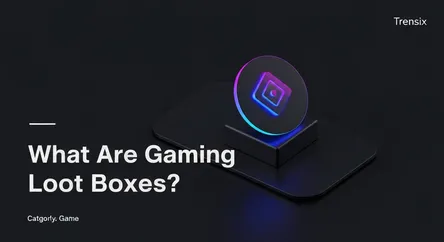Game
What Are Gaming Loot Boxes?

Discover what loot boxes are, why they're so controversial, and how these in-game purchases are being compared to gambling and regulated worldwide.
What is it?
A loot box is a consumable virtual item in video games which, when redeemed, provides the player with a randomized selection of other virtual items, or "loot." These can range from cosmetic customization options, like character skins and weapon camos, to items that affect gameplay, such as new characters, gear, or abilities. Players can often earn loot boxes through normal gameplay, but they are also frequently sold for real-world money as a form of microtransaction, offering a shortcut to acquiring desirable content.
Why is it trending?
Loot boxes are a major topic of debate due to their similarity to gambling. The element of chance involved in opening a box for a rare and valuable item has drawn comparisons to slot machines. This has led to significant controversy and legal scrutiny worldwide, with some countries, like Belgium, banning certain types of loot boxes entirely. High-profile games have faced massive player backlash for implementing aggressive or "pay-to-win" loot box systems, fueling a broader industry conversation about ethical monetization.
How does it affect people?
The impact of loot boxes is twofold. Financially, they can encourage players, including children, to spend significant amounts of money chasing rare items, sometimes leading to addiction-like behavior. In terms of gameplay, they can create an unfair advantage for those willing to pay, fostering a "pay-to-win" environment that frustrates the wider player base. The psychological reward loop of opening a loot box can be highly compelling, blurring the line between gaming and gambling for many.